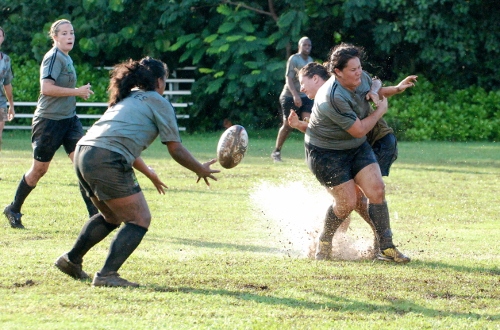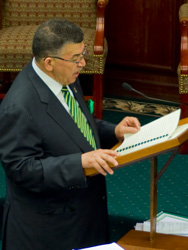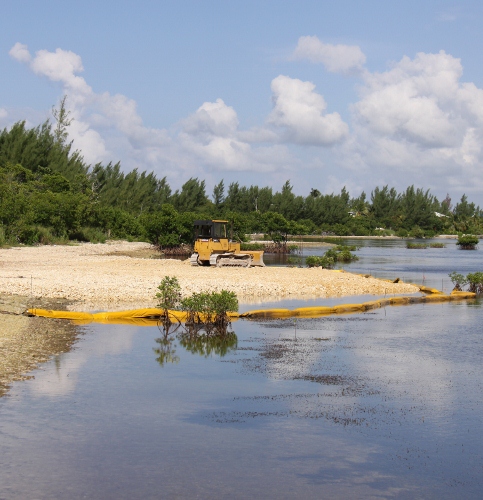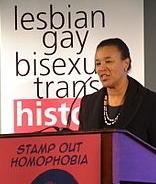Archive for October 17th, 2012

Governor joins civil service bosses for weekly meeting
(CNS): The governor joined the civil service heads recently during the deputy governor’s regular weekly meeting with the ministerial chiefs. Duncan Taylor was there to explain the details of an on-line training programme available to all civil servants which will be paid for by the UK for a six month trial period. The minutes released by the deputy governor’s office show that the course are part of the commitments in the Overseas White Paper to increase engagement and to help develop the capacity of the public services in the Overseas Territories. “It is a goodonline learning programme which offers hundreds of training courses,” the governor told the CS bosses.
The latest minutes also show the various other issues discussed at the meeting including a recap of the status of projects undertaken since the weekly CO Meetings commenced was discussed including the GAB Work Hours Policy, Cultural Day, the Employee Orientation Programme, the Deputy Governor’s Awards, the New Performance Management Template, use of GAB as a Shelter, civil Servant Voluntary Activities Policy and the submission of Policies to the AG for Bill of Rights.
See minutes below

Young Cayman sailors sail-on with support from bank
 (CISC): For the sixth year in a row, Scotiabank is the title sponsor for the Cayman Islands National Youth Sailing Championships. The two-day regatta, to be held on 20th and 21nd October 2012, will determine Cayman’s top sailors under the age of eighteen. The championship will be sailed in four different types of sailboats: Laser, Picos, Feva and Optimists. The Optimist division will also include a beginner class for novice racers (Green fleet). All races will take place on the waters of North Sound in front of the Cayman Islands Sailing Club in Red Bay. Spectators will be able to watch the racing from the balcony at the clubhouse and private motor boats are welcome to view the racing from the water.
(CISC): For the sixth year in a row, Scotiabank is the title sponsor for the Cayman Islands National Youth Sailing Championships. The two-day regatta, to be held on 20th and 21nd October 2012, will determine Cayman’s top sailors under the age of eighteen. The championship will be sailed in four different types of sailboats: Laser, Picos, Feva and Optimists. The Optimist division will also include a beginner class for novice racers (Green fleet). All races will take place on the waters of North Sound in front of the Cayman Islands Sailing Club in Red Bay. Spectators will be able to watch the racing from the balcony at the clubhouse and private motor boats are welcome to view the racing from the water.
“There has been a resurgence in youth sailing in the Cayman Islands in the last twelve months, and this year it looks like we are going to have the biggest ever turnout of youth sailors for the National Sailing Championship”, said coach Raph. All youth sailors with sailing experience are invited to attend the regatta. The races will begin at 1pm each day and there will be an awards ceremony following the racing on Sunday 21st October. All competitors will receive a t-shirt and there will be prizes for the top three sailors in each class. There will also be special prizes for the winner of each class.
To register and reserve a boat, please email Raph Harvey at coach@sailing.ky. Boats are limited and will be available on a first come first served basis.
For more information about sailing in the Cayman Islands, please visit www.sailing.ky

Heineken 7s slippery when wet!
 (CRFU): Cayman rugby action continued at the South Sound ground on 6 October under heavy rain and on a water logged pitch. Whilst the day started with glorious sunshine no-one would have predicted the deluge which followed and threatened to halt some very fun and exciting Rugby 7’s. The Heineken 7’s, the longest running beer sponsored sporting event on the planet kicked off with a new 2 pool format and features a re-vamped women’s league. In Pool A of the Men’s division The Peter O’Neill Wolfhounds joined the Queensgate Pigs Trotters and team Maples whilst Pool B saw the likes of the Café Patron Barbarians, the CML Ama Tsotsi and the Cayman Pal Thunder. (Photos Caroline Deegan)
(CRFU): Cayman rugby action continued at the South Sound ground on 6 October under heavy rain and on a water logged pitch. Whilst the day started with glorious sunshine no-one would have predicted the deluge which followed and threatened to halt some very fun and exciting Rugby 7’s. The Heineken 7’s, the longest running beer sponsored sporting event on the planet kicked off with a new 2 pool format and features a re-vamped women’s league. In Pool A of the Men’s division The Peter O’Neill Wolfhounds joined the Queensgate Pigs Trotters and team Maples whilst Pool B saw the likes of the Café Patron Barbarians, the CML Ama Tsotsi and the Cayman Pal Thunder. (Photos Caroline Deegan)
With much interest on whether the Pigs Trotters would continue their run of form from the ARScott 10’s into the 7’s it was the Patron Barbarians who got the action under way against the Cayman Pal Thunder in the opening game. The Thunder looked likely to take out the Barbarians, a team with a spread of age and ability but the Thunder struggled to contain even the likes of Ron Arscott and Grizz Adams who, whilst not the archetypal 7’s players, recorded the opening points of the tournament and helped secure a win over the Thunder. The Wolfhounds got the action fired up with a huge 53 point win over team Maples as the Likes of Jon Murphy and Alistair Lum were simply too fast for the Maples boys who could not stop the points from piling on.
 The Women’s league, playing in a round robin format between the GCM Cayman Storm, the GCM Pigs Trotters and the GCM Iguaccaneers (a joint venture of the Iguanas and the Buccaneers) started with a close match between the Pigs Trotters and the Iguacaneers. Whilst there are sprinklings of experience throughout the women’s league the vast majority of players are new to the sport of Rugby but nevertheless impressed with hard tackling and strong running in front of an appreciative local crowd. The Iguacaneers opened the scoring but were outdone late in the 2nd half to lose 7-5
The Women’s league, playing in a round robin format between the GCM Cayman Storm, the GCM Pigs Trotters and the GCM Iguaccaneers (a joint venture of the Iguanas and the Buccaneers) started with a close match between the Pigs Trotters and the Iguacaneers. Whilst there are sprinklings of experience throughout the women’s league the vast majority of players are new to the sport of Rugby but nevertheless impressed with hard tackling and strong running in front of an appreciative local crowd. The Iguacaneers opened the scoring but were outdone late in the 2nd half to lose 7-5
The Men’s games continued with the Ama Tsotsi taking on the Barbarians who looked to build on their win over the Thunder but the younger more rounded Ama Tostsi were victors before the Wolfhounds faced off against the Pigs Trotters in a nail biting game which ended in a draw!
Back on for the Women the Cayman Storm took on the Pigs Trotters and impressed with strong running up the middle of the park to see off the Pigs who rounded off the day with one win under their belt. In the final round of women’s games the Iguacaneers succumbed to the strong running ofthe Storm team who rounded off the day with 2 wins in the bag.
In the 5th place final for the men’s division Maples earned a hard fought victory over the Cayman Pal Thunder, The Pigs Trotters dispatched the Patron Barbarians to take third place whilst the Wolfhounds won the tournament with a wet finish against the Ama Tsotsi. The Wolfhounds played the closing stages of the game with only 6 players but managed to hand on for a well-earned win.

FFR law misses LA deadline
 (CNS): The most recent expectation for Premier McKeeva Bush to put the agreement he signed with the UK, the Framework for Fiscal Responsibility, into law was at the next sitting of the Legislative Assembly. However, this is not likely to be met as the 21 day constitutional deadline for bringing the legislation to the parliament for the next meeting has passed. Government must circulate and gazette all the bills it intends to put before the LA three weeks before the sitting opens. Members are next scheduled to meet on 5 November and government has gazetted a number of bills that it will be presenting at that meeting but the FFR law is not one of them.
(CNS): The most recent expectation for Premier McKeeva Bush to put the agreement he signed with the UK, the Framework for Fiscal Responsibility, into law was at the next sitting of the Legislative Assembly. However, this is not likely to be met as the 21 day constitutional deadline for bringing the legislation to the parliament for the next meeting has passed. Government must circulate and gazette all the bills it intends to put before the LA three weeks before the sitting opens. Members are next scheduled to meet on 5 November and government has gazetted a number of bills that it will be presenting at that meeting but the FFR law is not one of them.
Bush has missed several deadlines given to him by the UK this year and the latest indication had been that the new UK minister with responsibility for the Overseas Territories, Mark Simmonds, expected the premier to bring the relevant bill in this forthcoming parliamentary session.
However, if the premier is to bring the bill in this sitting he will need to suspend Standing Orders to overcome the issue of the 21 day constitutional requirement of public notice and consultation. If he does so after the 6 November, when the country’s Bill of Rights is finally implemented, it could open government to potential for legal action by the Caymanian public for passing an unconstitutional bill that did not involve the public’s right to consultation on new legislation.
Ezzard Miller, the independent member for North Side, said Tuesday that he believed the premier was about to miss another request by the UK to implement this agreement into law as no one had yet seen a copy of any possible draft legislation that could be brought in time for the next sitting.
“The FFR law should have been distributed to members on Monday 15 October and published in the gazette if the premier had intended to bring the law,” Miller said. “Of course, he could suspend Standing Orders but he cannot suspend the constitution. But I suspect he will not be bringing it anyway and, going by history, it appears Bush is going to defy the UK again. My concern about this is that the UK will get tired of this and simply send it down by Order in Council in the exact form as it is in the agreement without the LA being able to amend anything to suit us locally or to have a discussion about the best way to implement the agreement into law.”
The North Side MLA said he could not see any justifiable reason that this law wasn’t drafted because Bush has had the agreement for almost a year. “Really, it’s not that difficult,” Miller added.
The agreement was signed by McKeeva Bush with the former OT minister, Henry Bellingham, almost a year ago and he has admitted doing so reluctantly. Although he was asked to pass the law in June this year, when he failed to do so the UK made it a condition of the budget approval that it was enacted by the end of September. However, the premier revealed last month that he had told the new UK OT minister, Mark Simmonds, during a 20 September courtesy call while Bush was in London that he needed to consult with the business community about the FFR before he brought the bill.
The governor’s office said at the time that Simmonds was under the impression that the premier had made a commitment to bring the FFR into local law no later than 9 November, which would be at the next scheduled meeting. However, the premier denied that he had made any such commitment and said that the governor’s office had created a misleading picture of what was discussed. The premier claimed he never intended to pass the entire agreement into law and had not given a specific date, but had alluded to it taking only a few days once the legislation was drafted.
CNS contacted the governor’s office for comment when it became clear by Tuesday morning that the FFR bill was not being circulated in time for next legislative sitting but the office said it had decided not to comment yet on the on-going issue.
However, sources close to the FCO told CNS that the UK minister has made it clear to the Cayman Islands premier that he expects the FFR to be passed into local law shortly after the LA meets on 5 November. The enactment and ratification of this agreement formed part of the conditional approval by the UK of the Cayman government’s 2012/13 budget and is one of a number of commitments that the government has made to the UK in connection with the budget and addressing the country’s increasingly problematic public finances, which it appears to have failed to keep.
It is not clear at this point what will happen if the FFR is brought after the 21 days and the constitutional issues are sorted nor is it yet clear what will happen if Bush does not bring the bill at all in this forthcoming session. The only thing that is clear is that the premier will either be forced to defy the country’s own constitution with a later submission or defy the UK by not making one at all.
Related articles on CNS:

Mangroves perish under fill
 (CNS): Although an appeal has been filed with the Central Planning Authority regarding the on-going dispute over a proposed costal development in South Sound, it appears to be too late for the mangroves in the area. A mangrove replenishment project that was partially funded by an overseas grant to the Cayman government began disappearing this week under a pile of fill, which the developer is tipping into to the sea to reclaim his 2003 land boundary as a result of what activists say is a legally erroneous decision by the CPA. RC Estates was given permission to begin the work under which the replenished mangrove buffer is now vanishing.
(CNS): Although an appeal has been filed with the Central Planning Authority regarding the on-going dispute over a proposed costal development in South Sound, it appears to be too late for the mangroves in the area. A mangrove replenishment project that was partially funded by an overseas grant to the Cayman government began disappearing this week under a pile of fill, which the developer is tipping into to the sea to reclaim his 2003 land boundary as a result of what activists say is a legally erroneous decision by the CPA. RC Estates was given permission to begin the work under which the replenished mangrove buffer is now vanishing.
Although Protect South Sound, a group of local residents and local activists trying to preserve the coastal area, is waiting to have their appeal over the CPA decision heard, attempts at an injunction to stop the work by the government’s own Department of Environment appear to have failed.
The activists and the DoE believe that the CPA has made a decision which is not, as it claimed, based in law and that no costal boundary can be fixed, which means RC Estates' efforts to reclaim a 2003 land boundary which has since been lost to the ocean is wrong. However, while the legal arguments continue, the failure of the Attorney General’s Chambers to respond to the application for an injunction means the fill is continuing to be poured into the ocean and on top of mangroves replanted in 2006.
“Protect South Sound contacted government ministers on Monday to stress the urgency of the injunction application which has been before the AG for weeks,” said a spokesperson for group. “While we wait for a decision truck loads of fill are being dumped into and bulldozed out into the sea and over young mangrove trees. The CPA's 15th August 2012 decision, which erroneously approved the developer to extend his lots 50 feet out into the water and build a 9-foot high seawall only 2 feet in from the 2003 boundary, has been appealed and the developer was served with the notice and grounds of appeal last week on 10th October.”
 Despite the notice of appeal, with permission from the CPA in hand, RC Estates is proceeding lawfully at present with the development regardless. It will require an injunction to stop the coastal works, since the developer has avoided the need for a Cabinet granted coastal works licence because of what is seen as a misguided decision by the CPA. Having accepted the claim that the 2003 boundary is still valid, despite the fact that the sea took it, the CPA had indicated that work is not really coastal works but work on land which the developer is reclaiming.
Despite the notice of appeal, with permission from the CPA in hand, RC Estates is proceeding lawfully at present with the development regardless. It will require an injunction to stop the coastal works, since the developer has avoided the need for a Cabinet granted coastal works licence because of what is seen as a misguided decision by the CPA. Having accepted the claim that the 2003 boundary is still valid, despite the fact that the sea took it, the CPA had indicated that work is not really coastal works but work on land which the developer is reclaiming.
The 50 feet of recovering mangrove buffer that runs for 2,000 feet along the existing coastal lots of the proposed development in the South Sound was funded in part by a grant from the US Fish and Wildlife Service, the Migratory Bird Conservation and Reef Ball Foundation. The Cayman government via the DoE received around $30,000 towards the project, which has proved to be a success. While replenishing mangrove buffer is notoriously slow and difficult, the project, which began in 2006, was beginning to make significant progress.
In what is becoming a problem for conservation in Cayman, the DoE had managed to raise much needed funding for a conservation projects while another arm of government has completely undermined its efforts. Not only has government persistently failed to demonstrate any real commitment to environmental protection, in this case one agency of government has given permission to a developer to entirely destroy a project undertaken by government’s own environment agency.
During the recent hearing the DoE presented extensive evidence to the CPA of the recovery of the mangroves and a catalogue of environmental issues relating to the removal of the recovering buffer, as well as the importance of continuing to replenish the area and not remove more. As the marl continues to be dumped into the ocean in South Sound this week, local marine life there is also under threat. The DoE also pointed to the sensitivity and significance of the area as a Marine Replenishment Zone and as a protected Scenic Coastline Zone.
In addition the planning department had also advised the CPA against the removal of the mangrove, pointing out that the preservation of mangrove buffer at the high-water mark was best planning practice. “From department’s perspective, the 50’ buffer should be retained,” the planning department said in its recommendations.
The Development Plan (1997) designates this area as being a ‘Scenic Coastline Zone’ and Section 20 of the Development and Planning Regulations (2006 Revision) requires the CPA to ensure that the open character of scenic coastline land is preserved and to safeguard the public’s right to use the beaches and to gain access to them through public rights of way. In addition, the plan states that “the panoramic views and vistas provided by these coastlines are natural assets which are to be safeguarded for present and future generations.”
 Despite the recommendations from the two government departments, the CPA said it was swayed by the presentation given by the applicant’s lawyer that the owners had a legal right to develop the land. The attorney argued that his client’s land had a fixed boundary, which the sea had eroded, but it was still his client’s boundary.
Despite the recommendations from the two government departments, the CPA said it was swayed by the presentation given by the applicant’s lawyer that the owners had a legal right to develop the land. The attorney argued that his client’s land had a fixed boundary, which the sea had eroded, but it was still his client’s boundary.
However, it is understood that the law does state that coastal boundaries cannot be fixed — an issue that the CPA did not acknowledge when granting the developer planning permission and paved the way for him to begin tipping fill into the ocean.
Related articles on CNS:

Fourth fatal road victim of this year named
 (CNS): Police have now confirmed that the 59-year-old woman killed in a road smash yesterday morning was Beverley Elaine Ramsay from Bodden Town. The mother of a serving police officer, Ramsey died at the scene of the accident on Esterley Tibbetts Highway Tuesday at around 6am. She was driving her Hyundai van, which was travelling towards West Bay, when she was hit by a Nissan box truck close to the AL Thomson roundabout. The driver of the truck, who was unhurt, remains in police custody while enquiries continue into what they suspect was a case of drinking and driving. Ramsey is the fourth victim to die on Cayman’s roads this year and one of many killed over the last few years on this stretch of road.
(CNS): Police have now confirmed that the 59-year-old woman killed in a road smash yesterday morning was Beverley Elaine Ramsay from Bodden Town. The mother of a serving police officer, Ramsey died at the scene of the accident on Esterley Tibbetts Highway Tuesday at around 6am. She was driving her Hyundai van, which was travelling towards West Bay, when she was hit by a Nissan box truck close to the AL Thomson roundabout. The driver of the truck, who was unhurt, remains in police custody while enquiries continue into what they suspect was a case of drinking and driving. Ramsey is the fourth victim to die on Cayman’s roads this year and one of many killed over the last few years on this stretch of road.
The fatal accident follows the death of 21-year-old Corey Seymour from Prospect in May, who was killed when the truck he was driving in the early hours of the morning collided with another truck near the San Sebastian complex on South Sound Road.
Before that a 33-year-old man was killed in the early hours of the morning of 19 April in another suspected drink-driving crash. The Honda Civic he was a passenger in traveling on the West Bay Road left the highway and overturned close to the Coral Stone Club. In that case the 28-year-old driver who was also injured in the smash was arrested on suspicion of causing death by dangerous driving and suspicion of DUI.
At the start of the year Herman Byrd from George Town died in the single vehicle smash on Sea View Road in East End on Friday 27 January. Police believed speed played a part when he lost control of his car, which was travelling west, as he negotiated the right-hand corner bend just past Cottage.

Appeal court sent GSR report
 (CNS): Following the disclosure of a report regarding the significant levels of gunshot residue contamination at the George Town police station, as well as on vehicles, officers and equipment, another local attorney has sent the report to the Court of Appeal. Lawyers representing Razial Jeffers, who is awaiting an appeal ruling regarding his conviction for the murder of Marcus Ebanks and the attempted murder of four other men in July 2009, have forwarded the report because GSR evidence forms part of the case made against their client. Meanwhile, the police have said the findings are not unexpected and seemed unconcerned about the potential impact the report may have on current criminal cases.
(CNS): Following the disclosure of a report regarding the significant levels of gunshot residue contamination at the George Town police station, as well as on vehicles, officers and equipment, another local attorney has sent the report to the Court of Appeal. Lawyers representing Razial Jeffers, who is awaiting an appeal ruling regarding his conviction for the murder of Marcus Ebanks and the attempted murder of four other men in July 2009, have forwarded the report because GSR evidence forms part of the case made against their client. Meanwhile, the police have said the findings are not unexpected and seemed unconcerned about the potential impact the report may have on current criminal cases.
After passing on the report to the senior panel of judges that hear Cayman’s Grand Court appeals, Michael Wolkind QC and Richard Burton took a different view as to the importance of the report.
"This really is a significant development. Effectively the RCIPS are acknowledging that there has been an unsafe system up until now. It's in everyone's interest that scientific findings are reliable,” said Barton as he welcome the recommendations that were made in the report. “But it is obvious that a number of convictions must now be questioned."
The report by Scientific Support Manager Martin Gaule showed that there was a real danger of contamination as a result of GSR levels and made a number of recommendations to the RCIPS to help them reduce the problem. Following the report’s public revelations Detective Superintendent Marlon Bodden said the memo reminded staff to comply with the established processes and procedures when dealing with firearms and suspects and said it was not unusual for the RCIPS to issue such procedural reminders to staff.
"These swabbing exercises are carried out routinely in other jurisdictions and it is our intention, as part of our on-going efforts to further professionalise our service, to continue with a programme of swabbing to ensure that our stringent process and procedures are being adhered to,” Bodden stated.
Despite being routine in other jurisdictions, it appears that this is the first time such an exercise has been carried out in the Cayman Islands, though police now say it will be an on-going exercise. “We intend to continue the process of random sampling in order to ensure best practice," Bodden added.
The senior cop added that only two areas were found to have high levels of GSR: one on an officer and the other outside a cell at the station.
“Such a finding would not be unexpected as the report itself acknowledges,” Bodden said. “It is for this reason thatour protocol is that suspects are not handled by firearms officers without adequate precaution being taken to guard against contamination. The other areas yielded low levels or trace amounts of GSR.”
The senior officer added that it is not normal procedure for GSR evidence alone to be used to prove possession of a firearm but more usually used to support other evidence available, such as DNA or eye witness testimony.
However, attorneys are pointing to situations where the GSR is used to bolster what is claimed to be weak or circumstantial evidence. In those cases the report will discredit that evidence, leaving some crown cases thoroughly undermined and leading to legal challenges in forthcoming cases and more appeals in ones already tried.
Peter Polack, the local attorney to whom the report was disclosed during the process of a case, raised another concern relating to the report when he described the “unconscionable delay” in the release of this information to those affected by it on the part of the authorities.
“This is not the first time there has been a failure by the Cayman Islands law enforcement to release crucial information in a timely manner,” the lawyer said. Polack pointed to the ruling by Justice Alex Henderson in the Grand Court during the Jeffers murder case where the judge found that there had been a breach of the defendant's right to disclosure — a breach, Polack said, that was admitted by the Director of Public Prosecutions (DPP) representative present in court.
“Crown counsel accepts before me that the accused's right to disclosure had been breached,” the judge stated in his ruling before the start of the trial at the beginning of this year. "I have been assured during argument that steps will now be taken in the Prosecution Service to ensure that there is no repetition of this unfortunate event."
However, the defence lawyer said that this had clearly not been the case. Polack said in other matters relating to the Jeffers case Deputy DPP Trevor Ward was forced to submit a statement in the appeal court confirming the failure to disclose crucial telephone analysis records relating to the chief prosecution witness, which has now formed one of the grounds of appeal.
There has been a growing number of complaints in the Grand Court over the last few months from defence attorneys regarding problems with disclosure. It is understood that with the changes to the criminal procedure code introduced by the attorney general, which have seen certain criminal cases shunted into Grand Court far more quickly, and the elimination of preliminary enquiries, the workload at the DPP’s office may be now increasing beyond its ability to keep pace.
Related article and report on CNS:

UK legal heavyweight placed on local judicial board
 CNS): The former British attorney general during the last Labour administration has been appointed to the local Judicial and Legal Services Commission by the governor. Labour life peer Baroness Scotland of Asthal, one of the UK’s leading female legal heavyweights, will replace Sir Richard Ground, who resigned from the Commission earlier this year. Her appointment, which is made with immediate effect and will last until 2015, brings the board which is charged with appointing and dealing with disciplinary issues relating to Cayman's judiciary to the full complement of eight members.
CNS): The former British attorney general during the last Labour administration has been appointed to the local Judicial and Legal Services Commission by the governor. Labour life peer Baroness Scotland of Asthal, one of the UK’s leading female legal heavyweights, will replace Sir Richard Ground, who resigned from the Commission earlier this year. Her appointment, which is made with immediate effect and will last until 2015, brings the board which is charged with appointing and dealing with disciplinary issues relating to Cayman's judiciary to the full complement of eight members.
“Baroness Scotland is a most impressive lady, with an outstanding career to date and impeccable credentials,” Cayman Islands Governor Duncan Taylor said as he announced her appointment to the body established under the constitution. “I am delighted to be able to appoint such a distinguished lawyer and such a good friend of the Cayman Islands to the JLSC. I have no doubt that her wisdom and experience will be of great benefit to the Commission.”
Patricia Scotland was born in Dominca but moved to the UK when she was only two years old. She entered the legal profession when she was called to the Bar in 1977 and became a QC in 1991. She was made a Labour Peer in 1997 and served in several ministerial posts in the Tony Blair and Gordon Brown’s governments, including attorney general for England, Wales and Northern Ireland from July 2007 to May 2010.
As Parliamentary Under-Secretary of State for the Foreign and Commonwealth Office from 1999 to 2001, her responsibilities included the Caribbean and the UK's overseas Territories.
She was appointed as an Assistant Recorder in 1991, a Deputy High Court Judge in the Family Division in 1995, and a Recorder in 2000. Baroness Scotlandis currently in private practice in London and serves as a Member of the House of Lords. She has received many awards for her achievements and is a member of numerous advisory committees in the UK.
See her CV below.

Woman cleared in Money Express $100k theft
 (CNS): A woman charged with theft, conspiracy and stealing around US$100,000 from Money Express in George Town was acquitted Tuesday, after a judge threw out the case against her during a Grand Court trial because the evidence was so poor. The crown also dropped one of the charges against Martha Levy, who was accused of being involved in what had been originally believed to be an armed robbery but turned out to be an inside job at the business in January 2011. The evidence against Levy was based solely on that given by crown witnesses one of which was a co-accused who had admitted his part in the crime.
(CNS): A woman charged with theft, conspiracy and stealing around US$100,000 from Money Express in George Town was acquitted Tuesday, after a judge threw out the case against her during a Grand Court trial because the evidence was so poor. The crown also dropped one of the charges against Martha Levy, who was accused of being involved in what had been originally believed to be an armed robbery but turned out to be an inside job at the business in January 2011. The evidence against Levy was based solely on that given by crown witnesses one of which was a co-accused who had admitted his part in the crime.
However, the judge found the evidence was so weak and discredited it could not have persuaded him to convict Levy, and he released her from the court.
The crime was originally reported to police by Sanjay Andre Burrell, who was the employee at the store. He told police that the store in Elizabethan Square had been held up in an armed robbery on 15 January 2011 but shortly afterwards he and Joseph Lloyd Suberan were charged with theft by the police. The men then admitted cooking up the pretend robbery and stealing CI$62,667 and US$24,252 from the business, as well as possession of an imitation firearm used to bolster the pretence of an armed robbery. O’Brian Emmanuel Wright also later admitted to being an accessory as he had hidden the stolen cash and gun used in the crime.
Levy was arrested soon after the event when one of the men charged with the crime and others had made allegations against her and implicated her in the conspiracy as well.
Her trial started in June but was adjourned to give her defence attorney a chance to rebut, through telephone records, claims made by another crown witness, Jamie Morales, who said Levy was involved in the robbery and had claimed she was harassing him. These records were located and examined by a police expert and then used to clear Levy of the crime.
In his ruling the judge pointed to the evidence which had been presented to the court rebutting Morales' claims and bolstering Levy’s defence, and said that it was Morales that was harassing her.
With no other evidence that Levy had anything to do with the crime other than the say-so of the co-accused, Burrell, who said she came to the shop that day but was inconsistent with his evidence, Justice Charles Quin accepted the no case submission made by Clyde Allen, Levy’s defence attorney, on her behalf and dismissed the charges against her.
Stating that it was his duty to stop the case, the judge said, “I find the evidence adduced by the crown in this case has been so discredited in the case of Morales and is so intrinsically weak and inconsistent in relation to the co-accused Burrell that there is no possibility of my being convinced to the required standard by the evidence before me that the defendant is guilty,” he said, as he recorded not guilty verdicts on the remaining two charges against Levy.

Cuba lifts travel restrictions on locals
 (Reuters):Cuba will scrap much-reviled travel restrictions starting in January, making it easier for its citizens to leave the communist-ruled island in the first major reform to its migration policies in half a century. The changes reverse tough restrictions imposed in 1961 when the government tried to put the brakes on a mass migration of people fleeing after the 1959 revolution that put Fidel Castro in power. The government said Tuesday it would lift requirements to obtain an exit visa permitting departure from Cuba and a letter of invitation from someone in the destination country, putting an end to a process that Cubans complained was too time consuming and expensive, with no guarantee of final approval.
(Reuters):Cuba will scrap much-reviled travel restrictions starting in January, making it easier for its citizens to leave the communist-ruled island in the first major reform to its migration policies in half a century. The changes reverse tough restrictions imposed in 1961 when the government tried to put the brakes on a mass migration of people fleeing after the 1959 revolution that put Fidel Castro in power. The government said Tuesday it would lift requirements to obtain an exit visa permitting departure from Cuba and a letter of invitation from someone in the destination country, putting an end to a process that Cubans complained was too time consuming and expensive, with no guarantee of final approval.
Now, most Cubans will only have to show their passports, national identity cards and, if needed, a visa from the country they will visit to go abroad, deputy immigration chief Colonel Lamberto Fraga told reporters. In theory, the changes should make it easier for Cubans not only to travel but to work abroad and return home when they want.
But Cubans will still need to obtain visas from most countries, which may not be easy because of fears that those who were granted tourist visas might not want to return to the island.